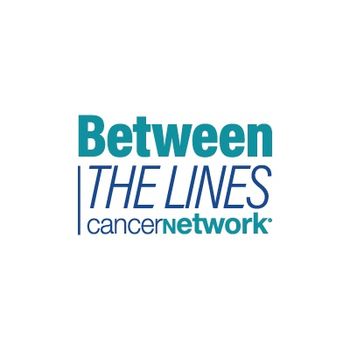
Pembrolizumab for patients with persistent, recurrent, or metastatic cervical cancer who received chemotherapy with or without bevacizumab had longer progression-free and overall survival vs placebo-treated patients.

Your AI-Trained Oncology Knowledge Connection!


Pembrolizumab for patients with persistent, recurrent, or metastatic cervical cancer who received chemotherapy with or without bevacizumab had longer progression-free and overall survival vs placebo-treated patients.

Safety findings from the phase 1 ASPEN-01 trial support the use of evorpacept with or without pembrolizumab or trastuzumab for patients with advanced solid tumors.

Research from a 2-part, phase 2 trial found that ibrutinib and rituximab followed by hyper-fractionated cyclophosphamide, vincristine, doxorubicin, and dexamethasone produced positive response data and a manageable safety profile for younger patients with mantle cell lymphoma.

PDS Biotechnology Corporation announced that the combination of PDS0101 and pembrolizumab achieved preliminary response efficacy for patients with advanced human papillomavirus–associated head and neck cancer.

A cohort study found that immune-mediated diseases were associated with a higher increased risk of total cancer, and organ-specific immune-mediated diseases were more strongly associated with local cancers than extra-local cancers.

Researchers prospectively analyzed the effect of implementing systemic outpatient identification on initiating goals of care conversations for high-risk patients with gynecologic cancers.

In recognition of World Cancer Day, Daniel Vorobiof, MD, touched on the use of Belong.life, a patient-centric social and professional network, in collecting real-world data and providing patients with additional resources, and highlighted several real-world data studies that were conducted with the application’s data.

Despite universal recommendations for genetic testing, data indicate that the use of germline testing remained underused among women with ovarian cancer who had commercial insurance.

Breast cancer risk was estimated among survivors of pediatric cancer who were treated with chest radiation with a newly developed and validated breast cancer risk prediction model.

Matthew Allaway, DO, spoke with CancerNetwork® about a new transperineal biopsy approach to detect cancer in hard-to-reach areas of the prostate.

Research from the Journal of Clinical Oncology suggests that venetoclax is a promising option for patients diagnosed with previously treated Waldenström macroglobulinemia.

In radiation oncology and medical oncology, representation of female faculty has increased from 1970 to 2019, and representation of individuals from historically underrepresented racial and ethnic groups in medicine remains low.

Improved progression-free survival was observed when treating patients with relapsed/refractory multiple myeloma with melphalan flufenamide plus dexamethasone compared with pomalidomide plus dexamethasone.

A retrospective study did not find any associations between survival of older patients with multiple myeloma and pre-diagnosis depressive symptoms and mental health-related quality of life.

Results from a phase 1/2 study showed that a combination of encorafenib, cetuximab, and nivolumab was well tolerated and yielded promising responses in patients with microsatellite stable BRAFV600E metastatic colorectal cancer.

In this episode of "Oncology Peer Review On-The-Go," Amy Comander, MD, spoke with CancerNetwork regarding important developments in breast cancer that took place in 2021 and key clinical trials that read out throughout the year.

Investigators reported that combining a blood-based biomarker panel with PLCOm2012 resulted in a significant improvement in risk assessment for lung cancer screenings.

Two-year overall survival increased from period between 2000 and 2004 to period between 2015 and 2019 for patients with Philadelphia chromosome-positive acute lymphoblastic leukemia who relapsed after allogeneic hematopoietic stem cell transplantation.

Research suggests a new HER2DX assay is potentially able to accurately predict risk of recurrence for patients with early-stage HER2-positive breast cancer.

Lyudmila Bazhenova, MD, and Federico Albrecht, MD, detailed the importance of using real-world evidence to inform treatment for patients with EGFR-mutated non–small cell lung cancer.

A study conducted by Mount Sinai investigators determined that the co-occurrence of t(4;14) and 1q gain was effective at identifying newly diagnosed patients with multiple myeloma who were at high risk of relapse.

A bi-specific anti-CD19/CD20 CAR T-cell therapy, C-CAR039, received a regenerative medicine advanced therapy designation and fast track designation from the FDA for treating patients with relapsed/refractory diffuse large B cell lymphoma.

A meta-analysis of 2 phase 3 randomized trials found that combination therapy including androgen deprivation therapy led to higher rates of metastasis-free survival for patients with high-risk non-metastatic prostate cancer.

The RELATIVITY-047 study highlighted a survival benefit with the combination of relatlimab plus nivolumab compared with nivolumab alone for patients with previously untreated advanced melanoma.

Findings from a phase 2 study demonstrated encouraging clinical activity and a manageable safety profile when patients with advanced cervical cancer were treated with second-line balstilimab and zalifrelimab.

Research indicated that non-Hispanic Black patients had significantly worse 5-year overall survival outcomes compared with Hispanic, Asian/Pacific Islander, and American Indian/Alaska Native patients.

A synthesis of P-values across 16 studies in different global regions found that socioeconomic status continues to be a significant prognostic factor of overall survival for patients with multiple myeloma.

The combination of quaratusugene ozeplasmid immunogene therapy plus pembrolizumab was granted fast track designation by the US FDA for the treatment of patients with unresectable stage III or IV non–small cell lung cancer who previously progressed on pembrolizumab.

CYNK-001 was recently granted fast track designation by the FDA for the treatment of patients with acute myeloid leukemia.

This episode features Don Dizon, MD, discussing how LGBTQ+ patients with cancer navigate the world of cancer care, and the critical steps needed to improve their experiences.